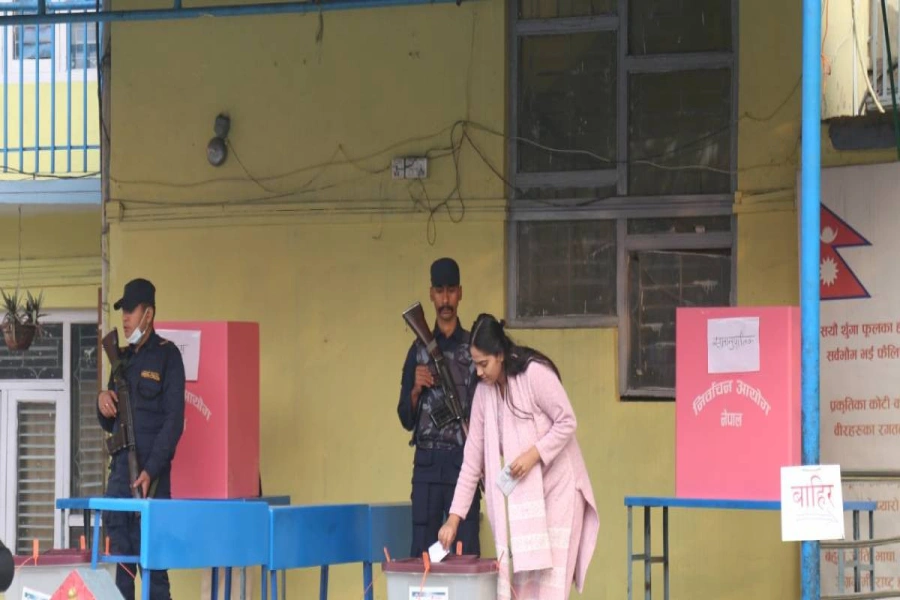The 7th International Women Entrepreneurs Business Fair started in Lalitpur on Friday. Prime Minister Pushpa Kamal Dahal inaugurated the five-day fair organized by the Federation of Women Entrepreneurs Association of Nepal (FWEAN), an organization of women entrepreneurs across the country. With the slogan of eating and using domestic products to promote domestic entrepreneurship, the exhibition and sale of women's handicraft products, Dhaka and hand-made paper products, food dishes, agricultural products, herbs, jewelry and many other goods are showcased in the fair. According to the organizers, the aim is to facilitate exports at the national and international levels. The organizer claims that the fair was organized in accordance with the objective of the ambitious campaign to make women independent under the leadership of women. Friday also marked another important program focused on women that was completed in the federal capital, Kathmandu. In order to implement this year's Women's Day slogan 'Let's invest in women, accelerate women's advancement', organizations including the Global Compact Nepal, United Nations Office in Nepal, UN Women, International Finance Corporation, Securities Board of Nepal organized the 'ring the bell for gender equality' event. The consensus of the organizers was that until women become financially capable, the slogans of women's empowerment will be limited to rhetoric. It was pointed out in the program that economic prosperity is the first and mandatory condition for women.
Investment Board collaborates with KPMG to promote investment p...

Prime Minister Pushpa Kamal Dahal also said that economic empowerment is the most important basis of women's empowerment in the fair organized by FWEAN. He said that the question of empowerment is connected with power in today's world. True empowerment cannot happen without financial empowerment. The reality is that society and country cannot develop without women being equal and strong. But what is our government doing to empower women economically? What is the Ministry of Finance doing to formulate a women-friendly budget? How fair are the plans formulated by the National Planning Commission for women? How liberal are the government mechanisms and components towards women? How respectful is the view of women and girls? What do our statistics say about women's access to education? How terrible is child marriage? How terrible is violence against women? These and many more questions we have been failing to answer over the years. We are making progress in speech but lagging behind when it comes to practice. The words must be translated into action in order to make sure that the speech of Prime Minister Dahal does not become another incident in a series of gaffes.
Statistics of labor market and labor participation shows that Nepal's overall labor force participation rate is 38.5 percent. But the participation of men is 53.8 percent and that of women is 26.3 percent even as women constitute more than 51 percent of the total population. What this means is that there is gender discrimination even in terms of the availability of employment opportunities. As a proportion of the population, the employment rate of women is only 22.9 percent, which is 25.4 percent less than that of men. While the total unemployment rate is 11.4 percent, the unemployment rate for women is 13.1 percent and that of men is 10.3 percent. This shows that women's participation in employment is still weak. Investing in women is a must-do to empower women economically. A survey conducted in 48 developing countries showed that 360 billion dollars should be invested annually for women's gender equality and economic empowerment. Ironically, we have not been able to invest significantly in women and girls. Even the investments made are not accessible to the target group. Our country, which is dominated by the patriarchal value system, still considers women as second-class citizens and considers investing in them as a 'loss business'. Our society, which refuses to give women equal status, does not value the interests and desires of women even now. Amidst this harsh reality, investment in women can be indigestible for traditional minded state apparatuses. It is not only a matter of economic prosperity, but also a matter of creating a non-discriminatory society.





































